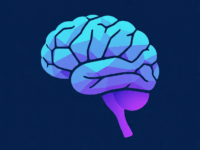
AI-Powered Startups That Raised Millions 💰
In the dynamic world of technology, Artificial Intelligence (AI) has emerged as a groundbreaking force, reshaping industries and attracting unprecedented investment. From streamlining complex operations to creating new forms of content, AI’s potential seems limitless. This has led to a surge in AI-powered startups that raised millions, even billions, in recent funding rounds, signaling a strong belief from investors in the transformative power of this technology.
Introduction: The AI Investment Boom 🚀
The year 2024 has been a monumental one for AI, with venture capital funding pouring into the sector at an astonishing rate. While overall startup funding saw a modest increase, AI-related companies were the undisputed stars, capturing a significant portion of global venture capital. This isn’t just about hype; it’s about tangible advancements and disruptive potential. These AI-powered startups that raised millions are not merely developing futuristic concepts; they’re delivering solutions that are already changing how businesses operate and how we interact with technology. The sheer volume of investment underscores the market’s confidence that AI is not just a trend but a fundamental shift in our technological landscape.
Background and Context: A New Era of Innovation
For years, AI was largely confined to academic research and specialized industrial applications. However, breakthroughs in machine learning, particularly in areas like natural language processing and computer vision, have propelled AI into the mainstream. The launch of consumer-facing applications, most notably OpenAI’s ChatGPT, ignited a public fascination and a frantic race among companies to integrate AI into their offerings.
This surge in interest has translated into massive investment. In the first nine months of 2024, AI-related investments accounted for 33% of total assets in US VC-backed companies, a significant increase from just 14% in 2020. This financial backing isn’t just enabling research and development; it’s accelerating the commercialization of AI technologies across various sectors, from enterprise software to healthcare and autonomous systems. Investors are increasingly looking for AI-powered startups that raised millions not just for their innovative tech, but for their clear path to profitability and real-world impact. The focus is shifting from theoretical possibilities to practical applications that can deliver immediate value.
Detailed Comparison: Titans of AI Funding
Let’s dive into some of the most prominent AI-powered startups that raised millions (and even billions) in recent times, highlighting their core offerings and the scale of their investments.
| Company Name | Core Offering | Key Funding Rounds (2024) | Total Funding (Approx.) | Valuation (Approx.) |
| Databricks | Unified Data & AI Platform | $10B (2024) | $14.7B+ | $62B |
| OpenAI | AGI, ChatGPT, DALL-E | $6.6B (2024) | $21.9B+ | $157B – $300B |
| xAI | Generative AI (Grok) | $6B (May 2024), $6B (Nov 2024) | $12B+ | $50B |
| Waymo | Autonomous Driving | $5.6B (Oct 2024) | $17B+ | $45B |
| Anthropic | AI Assistant (Claude) | $4B (Nov 2024) | $9.7B+ | $60B |
| Anduril Industries | AI for Defense & Security | $1.5B (Aug 2024) | $3.7B+ | $14B |
| CoreWeave | AI Cloud Infrastructure | $1.1B (May 2024) | $1.9B+ | $19B |
| Scale AI | Data Labeling & Annotation | $1B (2024) | $1.6B+ | $13.8B |
| Mistral AI | Open-source LLMs | $1.1B (2024) | $1.2B+ | $6.2B |
| DeepL | Neural Machine Translation | $300M (May 2024) | $315M+ | $2B |
| Hadrian | AI-enabled Factories (Aerospace & Defense) | $260M (Jul 2025) | Undisclosed | Undisclosed |
| OpenEvidence | Medical AI Search & Application | $210M (Jul 2025) | Undisclosed | Undisclosed |
This table clearly illustrates the immense capital flowing into the AI sector. Companies like OpenAI and Databricks are leading the charge in foundational AI and data platforms, but newer players like xAI, Anduril Industries, and CoreWeave are rapidly gaining ground in specialized AI applications and infrastructure, demonstrating that there’s still ample room for disruption and growth across various sectors.
Key Features / Benefits of These Funded Startups
These highly-funded AI-powered startups that raised millions are not just attracting capital; they’re offering cutting-edge solutions that deliver significant benefits:
- OpenAI: Beyond ChatGPT’s conversational prowess, OpenAI’s models are used for content generation, coding assistance, and advanced research. Their benefit lies in democratizing access to powerful AI, enabling widespread innovation across countless industries.
- Databricks: Their unified analytics platform allows businesses to process, analyze, and manage vast amounts of data efficiently. This enables real-time insights, accelerated machine learning model deployment, and a seamless integration of data and AI operations, leading to faster decision-making and increased operational efficiency for enterprise clients.
- xAI: Focused on accelerating human scientific discovery, xAI’s Grok, trained on data from X (formerly Twitter), aims to be a unique conversational AI, potentially offering real-time, nuanced insights from a vast and dynamic dataset, especially relevant for timely information processing.
- Waymo: As a pioneer in autonomous driving, Waymo’s technology promises to revolutionize transportation, offering safer, more efficient, and potentially more accessible mobility solutions. This significantly impacts logistics, ride-hailing, and personal travel.
- Anthropic: With an emphasis on “safe, helpful, and honest” AI, their Claude assistant is designed for robust performance in enterprise settings, offering greater reliability and a commitment to ethical AI development, which is increasingly important for businesses navigating AI adoption.
- Anduril Industries: By applying AI to defense and security, Anduril develops intelligent systems for surveillance, reconnaissance, and automated operations. Their solutions provide critical capabilities for national security and defense sectors, enhancing situational awareness and operational effectiveness.
- CoreWeave: Offering specialized GPU cloud infrastructure, CoreWeave addresses the intense computational demands of modern AI models. This provides crucial infrastructure for training and deploying large AI models, reducing costs and accelerating development for other AI companies that need massive computing power.
- Scale AI: By providing high-quality data labeling and annotation services, Scale AI solves a critical bottleneck in AI development. Their services ensure that AI models are trained on accurate and diverse data, leading to more robust, reliable, and unbiased AI applications across various domains.
- Mistral AI: As an open-source AI platform, Mistral AI is fostering innovation by providing powerful, accessible large language models that developers can build upon. This accelerates the adoption and customization of AI across various industries, promoting transparency and community-driven development.
- DeepL: This neural machine translation platform uses advanced algorithms to translate text with exceptional accuracy and fluency. Its benefits include enabling seamless cross-language communication for businesses and individuals, breaking down linguistic barriers in global operations.
- Hadrian: By developing AI-enabled factories for aerospace and defense manufacturing, Hadrian is revolutionizing production efficiency and quality control in critical industries. This allows for faster, more precise, and more secure manufacturing of complex components.
- OpenEvidence: A medical AI search and application tool, OpenEvidence provides U.S. clinical healthcare providers with rapid access to medical information and insights. This improves diagnostic processes, research efficiency, and ultimately, patient care.
Pros and Cons of the AI Investment Frenzy
Like any booming sector, the massive investment in AI-powered startups that raised millions comes with both advantages and disadvantages.
Pros:
- Accelerated Innovation: The influx of capital fuels rapid advancements in AI research and development, leading to quicker deployment of cutting-edge technologies and solving complex problems faster.
- Job Creation: The growth of AI startups creates new, specialized job opportunities in diverse fields, from AI researchers and engineers to data scientists, ethicists, and implementation specialists.
- Economic Growth: AI’s widespread application across industries boosts productivity, creates new markets, and drives overall economic expansion by enabling new services and efficiencies.
- Problem Solving: AI is being leveraged to tackle some of humanity’s most pressing challenges, including healthcare diagnostics, climate modeling, scientific discovery, and global communication.
- Democratization of AI: Many funded startups are working on making AI tools more accessible and user-friendly, allowing smaller businesses and individuals to leverage powerful AI capabilities without needing extensive in-house expertise.
Cons:
- Bubble Concerns: The rapid increase in valuations for some AI-powered startups that raised millions raises concerns about an investment bubble, similar to the dot-com era, where valuations might outpace actual revenue or sustainable business models.
- Talent Hoarding: Fierce competition for top AI talent can lead to inflated salaries and a concentration of expertise in a few large companies, making it harder for smaller startups to compete for essential human capital.
- Ethical Dilemmas: The rapid deployment of powerful AI without sufficient ethical safeguards can lead to issues like bias in algorithms, privacy violations due to data collection, and potential job displacement in certain sectors.
- Regulatory Scrutiny: The increasing power and pervasiveness of AI are drawing the attention of regulators worldwide, potentially leading to restrictive policies that could stifle innovation or create complex compliance burdens.
- High Burn Rate: Many AI startups, especially those focused on foundational models or complex hardware, require enormous computing power and specialized talent, leading to high operational costs and a continuous need for large investments to sustain growth.
Use Cases / Who Should Use It
The applications of these AI-powered startups that raised millions are incredibly diverse, impacting almost every sector:
- Enterprises and Large Corporations: Companies like Databricks, Anthropic, and Scale AI are invaluable for large organizations dealing with massive datasets, needing advanced analytics, secure AI assistants, or high-quality data for their models. They offer scalable solutions for complex enterprise challenges in sectors like finance, retail, and manufacturing.
- Developers and Researchers: Platforms like OpenAI and Mistral AI provide powerful APIs and open-source models that developers and researchers can leverage to build new applications, conduct experiments, and push the boundaries of AI, fostering a vibrant ecosystem of innovation.
- Creative Industries: Startups focused on generative AI for video (like Runway), image, and voice (like DeepL’s underlying technology for advanced translation and potential voice cloning) are transforming content creation for marketing agencies, media companies, and individual creators, opening up new artistic and commercial possibilities.
- Automotive and Logistics: Waymo’s autonomous driving technology is crucial for companies in the transportation sector, looking to revolutionize ride-sharing, logistics, and delivery services, promising enhanced safety and efficiency.
- Defense and Security: Companies like Anduril Industries, which apply AI to defense and security, are critical for government agencies and defense contractors seeking advanced intelligent systems for surveillance, reconnaissance, and automated operations, bolstering national security.
- Healthcare and Biotech: AI startups are revolutionizing drug discovery, personalized medicine, and diagnostics, offering tools that can analyze complex biological data and accelerate research into new therapies. OpenEvidence is a prime example of AI aiding clinical professionals.
- Financial Services: AI is used for fraud detection, algorithmic trading, personalized financial advice, and risk assessment, benefiting banks, investment firms, and fintech companies by improving accuracy and speed.
Essentially, anyone looking to automate complex tasks, derive deeper insights from data, create new forms of content, or develop intelligent systems will find value in the offerings of these well-funded AI startups.
FAQs about AI-Powered Startups and Funding
Q1: Why are so many AI-powered startups raising millions right now?
A1: The current boom is driven by several factors: significant technological advancements (especially in generative AI and large language models), increasing demand for AI solutions across industries, and strong investor confidence in AI’s long-term transformative potential and market opportunities. It’s perceived as the next major technological leap.
Q2: Is this AI funding surge a bubble?
A2: While there’s significant hype and high valuations, many analysts believe it’s not simply a bubble. The underlying technology is genuinely impactful, and many of these startups have proven business models or are addressing critical market needs. However, some individual companies might be overvalued, and a market correction is always a possibility.
Q3: What kind of AI companies are attracting the most investment?
A3: Companies working on foundational AI models (like large language models), AI infrastructure (like specialized cloud computing and AI chips), and AI applications that solve clear business problems (e.g., in enterprise software, cybersecurity, healthcare, and defense) are receiving the most attention due to their broad impact and scalability.
Q4: How do these startups use the millions they raise?
A4: The substantial funds are primarily used for research and development (to improve AI models, algorithms, and capabilities), hiring top AI talent (which is highly competitive), scaling operations (e.g., building out massive computing infrastructure), market expansion, and sometimes acquisitions to consolidate technology or market share.
Q5: What are the biggest challenges for AI startups, even with significant funding?
A5: Key challenges include the intense competition for top talent, the high cost of computing resources (especially GPUs), navigating complex ethical and regulatory landscapes, demonstrating clear Return on Investment (ROI) for enterprise clients, and the rapid pace of technological change requiring continuous innovation to stay ahead.
Conclusion: The AI Revolution Continues
The landscape of AI-powered startups that raised millions is a testament to the incredible innovation and investment pouring into artificial intelligence. From the foundational models that power new applications to the specialized tools that transform specific industries, AI is undeniably shaping our future. The companies highlighted—OpenAI, Databricks, xAI, Waymo, Anthropic, Anduril Industries, CoreWeave, Scale AI, Mistral AI, DeepL, Hadrian, and OpenEvidence—represent the vanguard of this revolution, each leveraging AI to solve complex problems and create unprecedented value.
While the immense funding underscores significant market confidence, it also brings challenges, including the need for robust ethical frameworks and careful management of rapid growth. Nevertheless, the trajectory is clear: AI is not just a technological advancement; it’s a fundamental shift in how businesses operate and how we interact with the world.
Final Verdict: A Future Powered by AI 💡
The consistent and substantial funding of AI-powered startups that raised millions reinforces the conviction that AI is here to stay and will continue to be a dominant force in technology and business. For investors, the focus is increasingly on startups with strong technological foundations, clear applications, and a path to sustainable growth. For businesses, embracing these AI solutions is no longer optional; it’s a necessity to remain competitive in an increasingly intelligent world. The ongoing investment reflects a collective belief in AI’s potential to drive efficiency, foster creativity, and unlock new frontiers of human capability. The future, it seems, is undeniably AI-powered.



















Leave a Reply